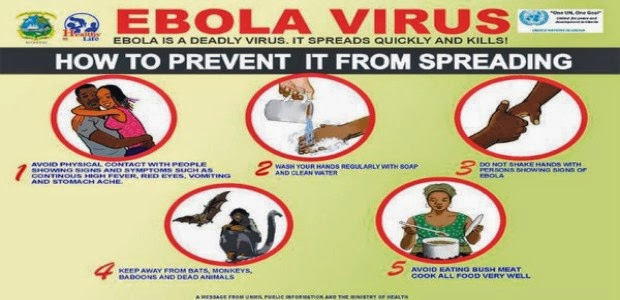The Spread of Ebola and Dirty Worldviews
Bill Clinton was swept into office with the help of the tag line “It’s the economy, stupid.” It was the brainchild of James Carville, campaign strategist of Bill Clinton’s successful 1992 presidential campaign waged against incumbent president George H. W. Bush.
When it comes to the spread of Ebola, it’s the worldview of the people, what they believe about the world.
First, the sanitary conditions, or should I say the lack of them, are a big part of the problem. Diseases spread when they have a fertile host and specific types of growth conditions. Think World War Z.
One of the ways we keep diseases from spreading in our homes, schools, factories, and businesses is by keeping them clean. We have weekly trash pick-up. Garbage is taken to dumps outside metropolitan areas. Toilets flush excrement far from our homes where waste is extracted and neutralized.
Hygiene is a factor in places where Ebola is spreading. “Ambulances were on standby to bring any sick people to the hospital for isolation. The health care workers also planned to hand out 1.5 million bars of soap and dispense advice on Ebola.” Think of that: Bars of soap.
Then there are the protective Ebola kits being distributed:
“What’s inside one of these kits?
“‘It’s a bucket that contains a sprayer, which is used for disinfectants; rolls of bags for capturing infected garments or items,’ says USAID’s Nancy Lindborg. There are also gloves, gowns, masks, soap and some chlorine, she says.
“USAID plans to distribute the kits to 400,000 households across Liberia. The first 50,000 kits are arriving next week, Lindborg says.
“Kits like these have been distributed in previous Ebola outbreaks, but never on this scale. The big question is: Can these kits help slow the spread of the virus?”

The kits can’t help if the people reject them. Moreover, it’s not enough to have the remedy to stop a disease; there must be the willingness of the people to embrace the remedy and fix the underlying problems inherent in their society.
Then there are stories like this:
“Eight bodies, including those of three journalists, were found after an attack on a team trying to educate locals on the risks of the Ebola virus in a remote area of southeastern Guinea, a government spokesman said on Thursday.
“‘The eight bodies were found in the village latrine. Three of them had their throats slit,’ Damantang Albert Camara told Reuters by telephone in Conakry.
*****
“Authorities in the region are faced with widespread fears, misinformation and stigma among residents of the affected countries, complicating efforts to contain the highly contagious disease.
“Fofana said the team that included local administrators, two medical officers, a preacher and three accompanying journalists, was attacked by a hostile stone-throwing crowd from the village when they tried to inform people about Ebola.”
Some societies resist change because their worldviews won’t allow entry of new ideas, and our secular society won’t allow certain belief patterns to enter. We take for granted and have access to in the United States and other developed parts of the world what so many people in the continent of Africa are without. These benefits came with the advance of civilization, a civilization built on a particular worldview that is often rejected and denied by secular elitists. They believe that throwing money at the problem will solve it. We’ve spent $22 trillion on the war on poverty since 1964, and we still have tens of millions of people stuck in a world of dependency.
Poverty is more than a lack of things; it’s a state of mind affected by worldview thinking. When people stopped believing that they lived in “an enchanted forest” and that “glens and groves, rocks and streams are alive with spirits, sprites, demons” and that “nature teems with sun gods, river goddesses, [and] astral deities,” ((Nancy R. Pearcey and Charles B. Thaxton, The Soul of Science: Christian Faith and Natural Philosophy (Wheaton, IL: Crossway Books, 1994), 23–24.)) at that moment the world and everything in it changed. Everything seemed possible within the boundaries of God’s Providence and law, both moral and natural. A Christian worldview made science possible and civil government ministerial rather than messianic.
Soap, chlorine, hygiene, and medical personnel will be a great help in combating the spread of Ebola, but in the end a shift in worldview thinking will be the ultimate cure.



